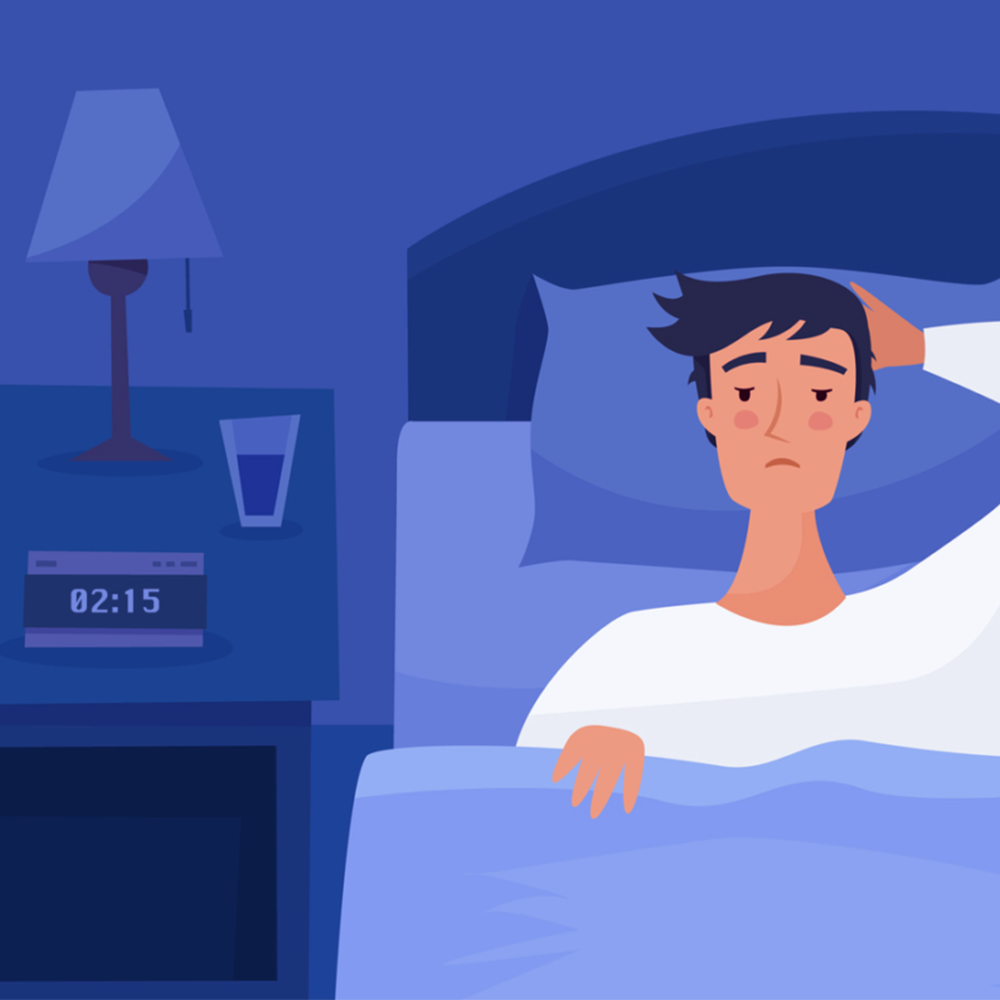Discover Related Products
Now explore supplements designed to support Longevity, Gut Health & Cellular Vitality.
CITOZYM - Support Natural Detox, Immune and Longevity Support
The Importance of Regular Sleep: A Scientific Analysis

Sleep is a fundamental component of our health and overall well-being. However, many people are unaware of the importance of maintaining a regular sleep cycle. In this article, we will explore the scientific basis of sleep, the benefits of regular sleep, and the negative consequences of irregular sleep.
The Science of Sleep
Sleep is a complex biological process that involves different stages, including REM (Rapid Eye Movement) sleep and non-REM sleep. Each stage has a specific function in restoring the body and mind. Non-REM sleep is divided into three stages: N1, N2, and N3. During N1 sleep, which is the stage of falling asleep, the body starts to relax and brain waves slow down. N2 is a light sleep stage where body temperature drops and heart rate slows. N3, also known as deep sleep, is crucial for physical repair and growth, as this is when the body releases most of its growth hormone (1). REM sleep is characterized by increased brain activity, rapid eye movements, and muscle atonia, a condition where muscles are partially paralyzed. This stage is essential for memory consolidation and emotional processing (1).
Benefits of Regular Sleep
Cognitive Function Improvement
A regular sleep cycle is essential for proper brain function. Studies have shown that sleep deprivation or irregular sleep can impair memory, concentration, and decision-making abilities. Sleep deprivation negatively affects executive functions, which include problem-solving, critical thinking, and planning (2). Moreover, lack of sleep can lead to deficits in working memory, which is crucial for managing temporary information during complex cognitive tasks (3).
Physical Health
Regular sleep helps maintain a healthy heart and reduces the risk of cardiovascular diseases. Epidemiological studies have shown a correlation between insufficient sleep and an increased risk of hypertension, heart attack, and stroke (4). Additionally, sleep helps regulate metabolism, promoting the maintenance of a healthy body weight. Lack of sleep is associated with an increased risk of obesity, as it affects hormones that regulate appetite, such as ghrelin and leptin (5). Adequate sleep also improves insulin sensitivity, reducing the risk of type 2 diabetes (6).
Mental Health
Regular sleep is a key factor for emotional well-being and mental health. Sleep deprivation is linked to an increased risk of developing mood disorders such as depression and anxiety. Lack of sleep can raise cortisol levels, the stress hormone, which in turn can contribute to symptoms of anxiety and depression (7). REM sleep, in particular, is crucial for emotion regulation and stress management. Neuroimaging studies have shown that REM sleep deprivation can lead to hyperactivity in the amygdala, a brain region involved in emotional response (8).
Consequences of Irregular Sleep
Irregular sleep can have numerous negative health consequences. Among these are an increased risk of traffic and workplace accidents due to reduced concentration and slower reaction times. Sleep deprivation can lead to decreased alertness and motor skills, increasing the risk of errors and accidents (9). Additionally, sleep deprivation compromises the immune system, making the body more susceptible to infections. Lack of sleep reduces the production of cytokines, proteins that help fight infections, and reduces the effectiveness of the immune response (10). In the long term, irregular sleep can lead to chronic health problems such as heart disease, diabetes, and obesity. Chronic sleep deprivation has been associated with increased systemic inflammation, which is a risk factor for many chronic diseases (11). Moreover, it can negatively affect social relationships and quality of life, increasing the risk of social isolation and reducing work productivity. Sleep deprivation can negatively impact mood and social interaction abilities, leading to problems in interpersonal relationships (12).
Strategies to Improve Sleep
Establish a Sleep Routine
Establishing a regular sleep routine can help improve sleep quality. Going to bed and waking up at the same time every day, even on weekends, helps regulate the internal biological clock (circadian rhythm). Studies show that maintaining a consistent sleep routine improves sleep quality and reduces the time it takes to fall asleep (13).
Lifestyle
Avoid using electronic devices before bed, as the blue light emitted by these devices can interfere with melatoninproduction, the hormone that regulates sleep. Blue light suppresses melatonin production more than light of any other color, making it harder to fall asleep (14). Additionally, limiting caffeine and alcohol consumption, especially in the evening, can promote more restful sleep. Caffeine blocks adenosine receptors, a chemical that promotes sleep, while alcohol can interfere with the REM sleep cycle (15).
Conclusion
Maintaining a regular sleep cycle is essential for physical and mental well- being. Scientific research has shown that quality sleep not only improves cognitive functions and physical health but is also crucial for emotional well- being. Adopting healthy habits and creating a sleep-friendly environment can make a significant difference in the quality of our lives.
References
- National Institutes of Health. (2020). Brain Basics: Understanding Sleep.
- Walker, M. (2017). Why We Sleep: Unlocking the Power of Sleep and Dreams. New York, NY: Scribner.
- Baddeley, A. D. (1992). Working memory. Science, 255(5044), 556-559.
- Cappuccio, F. P., D'Elia, L., Strazzullo, P., & Miller, M. A. (2011). Sleep duration and all-cause mortality: A systematic review and meta- analysis of prospective studies. Sleep, 33(5), 585-592.
- Taheri, S., Lin, L., Austin, D., Young, T., & Mignot, E. (2004). Short sleep duration is associated with reduced leptin, elevated ghrelin, and increased body mass index. PLoS Medicine, 1(3), e62.
- Spiegel, K., Leproult, R., & Van Cauter, E. (1999). Impact of sleep debt on metabolic and endocrine function. The Lancet, 354(9188), 1435-1439.
- Meerlo, P., Sgoifo, A., & Suchecki, D. (2008). Restricted and disrupted sleep: Effects on autonomic function, neuroendocrine stress systems, and stress responsivity. Sleep Medicine Reviews, 12(3), 197-210.
- Yoo, S. S., Gujar, N., Hu, P., Jolesz, F. A., & Walker, M. P. (2007). The human emotional brain without sleep—a prefrontal amygdala disconnect. Current Biology, 17(20), R877-R878.
- Durmer, J. S., & Dinges, D. F. (2005). Neurocognitive consequences of sleep deprivation. Seminars in Neurology, 25(1), 117-129.
- Besedovsky, L., Lange, T., & Born, J. (2012). Sleep and immune function. Pflugers Archiv-European Journal of Physiology, 463(1), 121-137.
- Irwin, M. R. (2015). Why sleep is important for health: A psychoneuroimmunology perspective. Annual Review of Psychology, 66, 143-172.
- Medic, G., Wille, M., & Hemels, M. E. (2017). Short- and long-term health consequences of sleep disruption. Nature and Science of Sleep, 9, 151-161.
- Monk, T. H., Buysse, D. J., Billy, B. D., Kennedy, K. S., & Willrich, L. M. (2011). Sleep and circadian rhythms in four orbiting astronauts. Journal of Biological Rhythms, 26(2), 95-104.
- Chang, A. M., Aeschbach, D., Duffy, J. F., & Czeisler, C. A. (2015). Evening use of light-emitting eReaders negatively affects sleep, circadian timing, and next-morning alertness. Proceedings of the National Academy of Sciences, 112(4), 1232-1237.
- Roehrs, T., & Roth, T. (2001). Sleep, sleepiness, and alcohol use. Alcohol Research & Health, 25(2), 101-109.







No comments